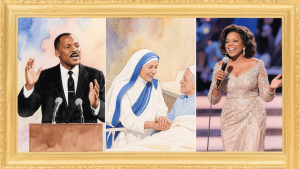The INFP (Mediator or Idealist) is one of the most creative, empathetic, and idealistic personality types in the MBTI system, known for their deep values, rich inner world, and pursuit of harmony. This comprehensive guide explores INFP meaning, characteristics, suitable careers, famous examples, and relationship compatibility to help you understand this unique personality type.

INFP Meaning: What is an INFP Personality?
INFP is one of the 16 Myers-Briggs Type Indicator (MBTI) personalities, representing Introverted (I), Intuitive (N), Feeling (F), Perceiving (P). Also called “The Mediator” or “The Idealist,” they comprise about 4-5% of the global population.
Core INFP traits:
Introverted (I): Gains energy from solitude, prefers deep thinking over extensive socializing Intuitive (N): Focuses on abstract concepts and future possibilities rather than concrete realities Feeling (F): Makes decisions based on personal values and emotional impact Perceiving (P): Prefers flexible, open-ended lifestyles over rigid planning
The full psychological type is Introverted Feeling with Extraverted Intuition. Often described as “Healers” or “Dreamers,” INFPs are renowned for their strong empathy and quest for life meaning.
INFP Characters: Key Personality Traits
INFPs possess a unique combination of traits that make them both sensitive and highly creative:
Core Strengths
Deep empathy: Exceptionally attuned to others’ emotions, often becoming emotional anchors for friends Strong values: Rarely compromise on beliefs that contradict their inner standards Rich creativity: Excel in arts, writing, and music Idealism: Persistent belief in improving the world
Potential Challenges
Oversensitivity: Easily hurt by criticism or conflict, prone to self-doubt Decision paralysis: Over-consideration of possibilities leads to difficulty choosing Conflict avoidance: Tendency to avoid confrontation may cause unresolved issues Implementation struggles: While deep thinkers, may lack follow-through
Daily Manifestations
Enjoy solitude but form few deep relationships Find superficial socializing draining Frequently contemplate life’s meaning and philosophical questions
INFP Celebrities: Famous INFP Personalities
Many renowned artists, writers, and activists are believed to be INFPs. Notable examples include:
J.K. Rowling (Harry Potter author): Works embody idealism and profound human insight William Shakespeare: Explored emotional complexity through plays Princess Diana: Known for deep compassion and humanitarian work Johnny Depp: Unique artistic choices reflect INFP sensitivity George Orwell (1984 author): Social critiques demonstrate INFP idealism Audrey Hepburn: Combined grace with humanitarianism Fred Rogers (Mister Rogers): Influenced generations with gentleness Helen Keller: Overcame disabilities to become humanitarian icon
These figures all pursued deeper meaning in distinctive ways, leaving lasting impacts in their fields.
INFP Personality: Psychology & Growth Strategies
The INFP inner world is both rich and complex. Key psychological traits and development advice:
Core Motivations
Authenticity-seeking: Disdain for pretense, crave genuine connections Meaning-driven: Work must align with values to sustain motivation Perfectionist tendencies: High standards for self/others may cause disappointment
Growth Recommendations
Set boundaries: Prevent emotional exhaustion from overgiving Embrace imperfection: See reality-ideal gaps as growth opportunities Develop execution skills: Transform ideas into action Balance feeling with logic: Incorporate rational analysis in decisions

INFP Compatibility: Best Romantic Matches
INFPs seek deep understanding and emotional resonance in relationships. Most compatible types:
INFJ (Advocate):
Share intuition and values Understand INFP complexity
ENFJ (Protagonist):
Extraversion balances INFP introversion Both value emotional connections
ENFP (Campaigner):
ENFP energy inspires INFP adventure Shared love of possibilities
ENTJ (Commander):
Action-oriented ENTJ complements hesitant INFP INFP creativity offers ENTJ new perspectives
Success factors:
Mutual respect for emotional needs Allow INFP sufficient alone time Pursue meaningful life goals together
INFP Careers: Ideal Professional Paths
INFPs need value-aligned work environments. Best career fields:
Creative Arts
Writer/Poet: Express profound emotions through words Musician/Composer: Convey inner world through art Visual Artist: Painting, photography, etc.
Helping Professions
Therapist: Utilize empathy to help others Social Worker: Advocate for marginalized groups Teacher/Mentor: Nurture student potential
Independent Work
Content Creator: Share meaningful perspectives Artisan: Handcrafted goods businesses
Workplace Tips
Avoid high-social roles like sales Prefer small teams or independent work Transform personal experiences into professional strengths
Conclusion: Embracing Your INFP Nature
INFPs are the world’s dreamers and healers. Their sensitivity is not weakness but a window into human understanding; their idealism not naivety but a catalyst for progress. By understanding their traits, INFPs can find fulfilling paths that honor their authenticity while making unique contributions.
Whether choosing careers, building relationships, or personal growth, the key is leveraging INFP gifts—deep empathy, creativity, and value-driven purpose rather than conforming to unsuitable molds. Remember: the world needs your distinctive perspective and gentle strength.
“Be yourself; everyone else is already taken.” — Oscar Wilde (believed INFP)
May every INFP reading this embrace their traits with confidence and find fulfillment on their authentic path.
INFP's main strengths include: strong empathy, rich creativity, firm values and idealism. They tend to have a deep understanding of other people's feelings and excel in art, writing and other fields. The main weaknesses include: oversensitivity, procrastination, avoidance of conflict and easy feeling lost in the real world. They often have difficulty completing projects because of their pursuit of perfection, and are easily hurt by criticism from outsiders.
The biggest challenges for INFPs in the workplace include: 1. They feel extremely bored when dealing with repetitive tasks; 2. They are easily stressed in a competitive environment; 3. They find it difficult to adapt to strict hierarchies and bureaucracy; 4. They often have inner conflicts because their values do not match their work. INFPs are advised to look for careers that allow them to be creative, help others, and have a flexible work environment.
The best way to get along with INFPs is to: 1. respect their values and personal space; 2. have deep conversations instead of small talk; 3. avoid harsh criticism and express opinions in a gentle way; 4. support their creative projects; 5. understand that they need time alone occasionally. Remember, what INFPs value most is sincerity and deep emotional connection.





